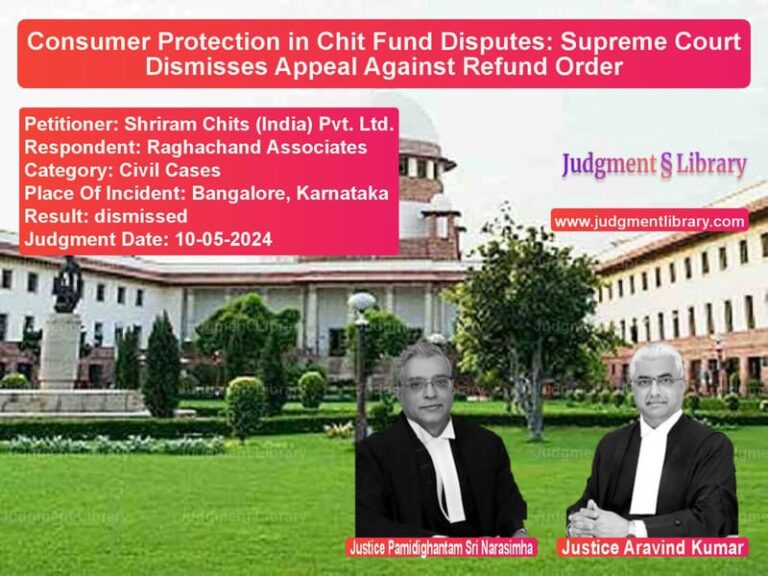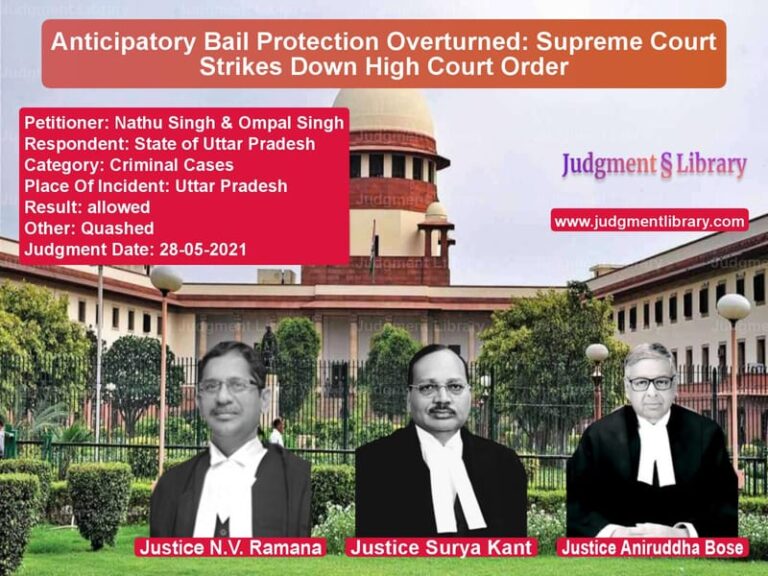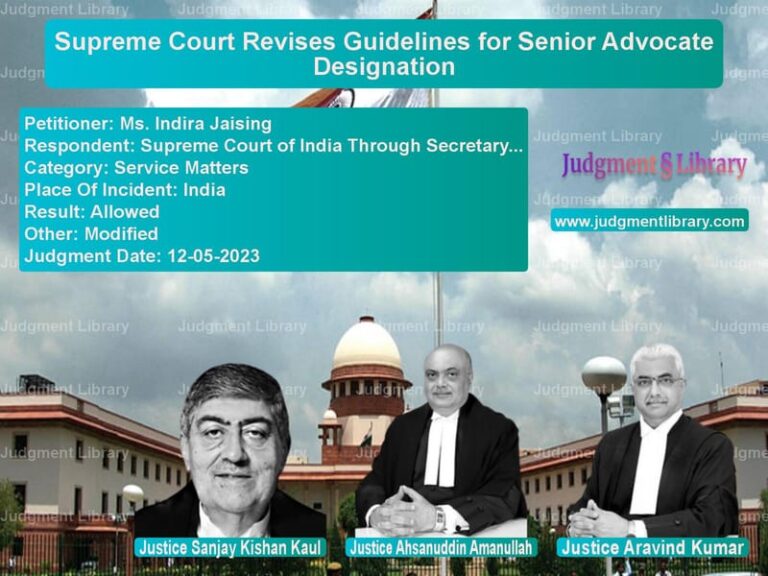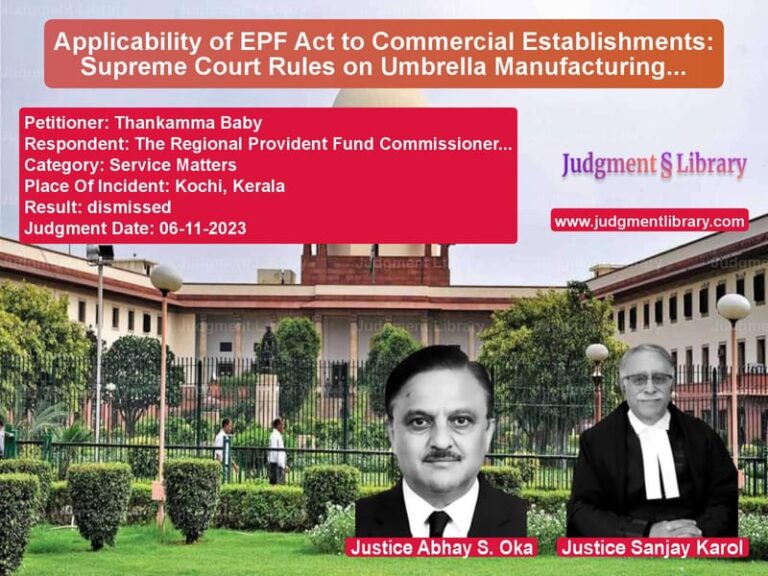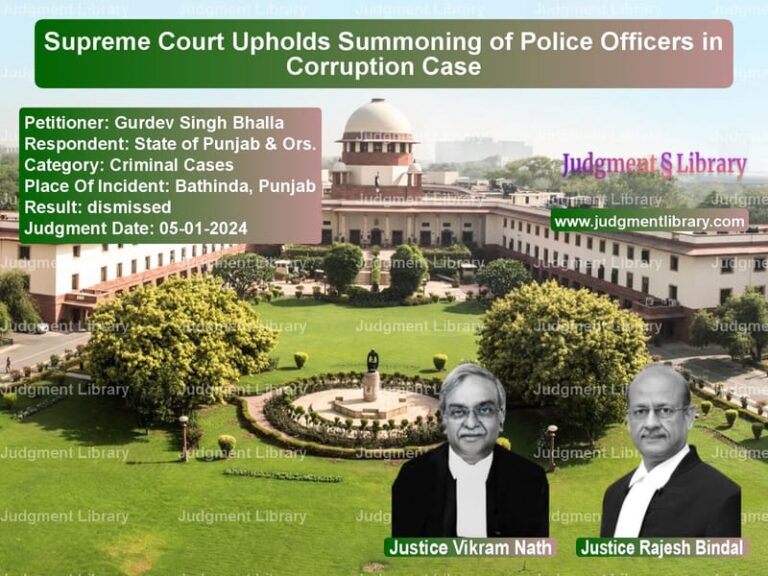Tax Credit on Raw Materials: Supreme Court Clarifies Gujarat VAT Act Application
The case of State of Gujarat vs. Reliance Industries Limited revolves around the interpretation of tax credit provisions under the Gujarat Value Added Tax Act, 2003 (VAT Act). The Supreme Court was tasked with determining whether tax credit reductions should apply once or twice when goods fall under multiple categories in Section 11(3)(b).
Background of the Case
Reliance Industries Limited, the respondent, is engaged in manufacturing and selling polymers and chemicals. The company procures raw materials such as furnace oil, natural gas, and light diesel oil within Gujarat, paying VAT at the time of purchase. These inputs are then used in the manufacture of goods, which are subsequently transferred to branch offices in other states. The dispute arose over the tax credit claimed by the company on these raw materials.
The State of Gujarat argued that tax credit should be reduced twice: once under Section 11(3)(b)(ii) for branch transfers and again under Section 11(3)(b)(iii) for fuel usage in manufacturing. The Gujarat High Court ruled in favor of Reliance Industries, stating that the reduction should only apply once. The State then appealed to the Supreme Court.
Arguments Presented
Petitioners’ Arguments (State of Gujarat):
- The VAT Act allows tax credit but also mandates reductions in certain cases, including branch transfers and fuel usage.
- The law should be applied as written, and reductions must be made under both sub-sections where applicable.
- Allowing a single reduction would contradict the legislative intent of preventing excessive tax credits.
Respondents’ Arguments (Reliance Industries Limited):
- Applying tax credit reductions twice would amount to double taxation, which is not the intention of the VAT Act.
- The High Court correctly interpreted the law by limiting the reduction to a single instance.
- Furnace oil, taxed at 4%, would be unfairly subjected to an 8% reduction if the State’s argument was accepted.
Supreme Court’s Ruling
A bench comprising Justice A.K. Sikri and Justice Ashok Bhushan ruled that tax credit reductions could apply under both provisions but with limitations. The key points from the judgment were:
- “Reduction of 4% would be applied whenever a case gets covered by sub-clause (ii) and again when sub-clause (iii) is attracted.”
- However, if VAT paid on raw materials is only 4% (such as furnace oil), the reduction cannot exceed that amount.
- For fuels like natural gas and light diesel oil, which are taxed at 12.5%, tax credit should be reduced by 4% under each applicable sub-clause.
- The Gujarat High Court’s ruling was incorrect in limiting reductions to only one instance.
Important Extract from the Judgment:
“This is a mega tax credit scheme under the VAT Act, meant for all kinds of manufactured goods. The Legislature has the prerogative to decide the extent and circumstances under which tax credit is allowed or reduced. Courts should not interfere with this legislative intent.”
Conclusion
This ruling provides clarity on how tax credit reductions should be applied under the Gujarat VAT Act. The Supreme Court upheld the State’s argument that reductions could be made under multiple sub-sections but imposed a limitation to prevent reductions from exceeding the VAT paid. The judgment ensures a fair balance between tax credit benefits for manufacturers and revenue collection by the State.
Don’t miss out on the full details! Download the complete judgment in PDF format below and gain valuable insights instantly!
Download Judgment: State of Gujarat vs Reliance Industries Supreme Court of India Judgment Dated 22-09-2017.pdf
Direct Downlaod Judgment: Direct downlaod this Judgment
See all petitions in Income Tax Disputes
See all petitions in GST Law
See all petitions in Tax Refund Disputes
See all petitions in Judgment by A.K. Sikri
See all petitions in Judgment by Ashok Bhushan
See all petitions in allowed
See all petitions in supreme court of India judgments September 2017
See all petitions in 2017 judgments
See all posts in Taxation and Financial Cases Category
See all allowed petitions in Taxation and Financial Cases Category
See all Dismissed petitions in Taxation and Financial Cases Category
See all partially allowed petitions in Taxation and Financial Cases Category



